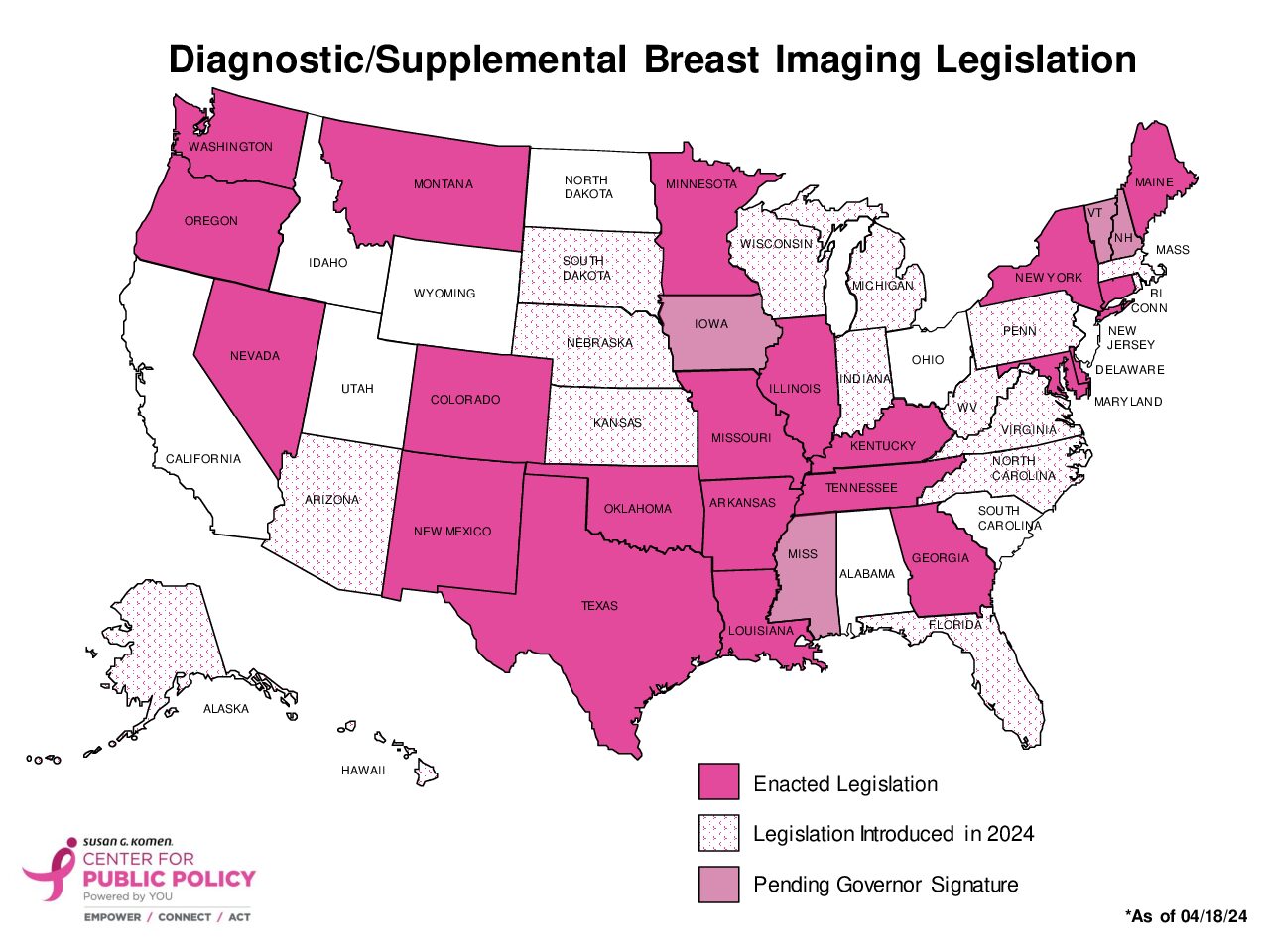Susan G. Komen Stresses Importance of Remedying the Issue
Susan G. Komen is engaging in policy efforts to address a recent change in medical billing that may eliminate health insurance coverage for breast reconstruction surgery called DIEP flap, a type of natural tissue breast reconstruction that uses tissue from the lower abdomen to create a new breast.
DIEP (Deep Inferior Epigastric Perforator) flap reconstruction surgery is preferred by some women because it allows the surgeon to use the patient’s own transplanted tissue instead of an implant. The procedure does not involve moving or cutting muscle, resulting in a faster recovery time and a lower risk of long-term complications than older flap surgeries.
Until recently, DIEP flap breast reconstruction and other perforator flap breast reconstruction surgeries had unique billing codes administered by the Centers for Medicare & Medicaid Services (CMS).
However, in 2019, the American Medical Association (AMA) – at the request of the American Society of Plastic Surgeons (ASPS) – considered whether these flap procedures should be coded differently. As a result of that review, the AMA revised another code related to reconstruction to include DIEP and other similarly advanced flap procedures, and CMS plans to discontinue the unique codes for individual flap procedures by December 31, 2024.
Although the coding changes are not scheduled to take effect until next year, some private health insurers have already made changes to DIEP flap surgery coverage, and Komen has been made aware of additional insurers who are also considering this change. This surgery is complex, lengthy and expensive to perform, and without adequate coverage of the cost (which can be more than $50,000), people may need to either pay out of pocket for DIEP flap surgery or choose treatment paths that may not be the best decision for them. The changes have also spurred some surgeons to only offer the surgery to patients who can pay the full cost of the procedure in cash, and other surgeons have stopped offering the surgery altogether.
Last fall, the U.S. House and Senate led by Senator Amy Klobuchar and Congresswoman Debbie Wasserman Schultz (both breast cancer survivors), sent letters to CMS Administrator Chiquita Brooks-LaSure, calling for CMS to re-evaluate and reverse their decision and reinstate the unique billing code to ensure continued access to DIEP flap surgery. To date, CMS has not indicated they plan to revise their decision.
At Komen, we are concerned that if this issue is not remedied, all commercial health insurers may stop covering DIEP flap surgery between now and next year. While insurance coverage is required for breast reconstruction by some state laws and the federal Women’s Health and Cancer Rights Act of 1998 (WHCRA), the laws do not specify the types of breast reconstruction surgeries that must be covered, leaving coding changes such as this in a legal gray area.
Komen believes that decisions about whether to get breast reconstruction and which type of reconstructive surgery to choose are deeply personal, and women need to be able to choose the option that’s right for them without financial burden or toxicity. While the issue at hand is focused on reconstructive surgeries, there are other costs, such as customized breast prostheses, that are also not adequately covered. People diagnosed with breast cancer are already struggling with high (and growing) out-of-pocket costs for their care. Komen alone has supported nearly 17,000 women with financial assistance grants in the past year, a more than 30 percent increase in need over the prior year.
Komen has connected with countless stakeholders who are concerned about this issue including patients, providers, provider groups, federal policymakers and advocacy organizations over the last two months since learning about the potential insurance coverage changes for DIEP flap procedures. These conversations have helped to form an engagement plan and determine the next step needed to best serve the patients we represent.
In addition to the immediate need to ensure patients maintain access to the highest standards of breast reconstruction, Komen also feels the need to explore a long-term policy solution. The WHCRA was a monumental step forward when it was passed in 1998, but much has changed in medicine over the last 25 years. Modernizing this law to guarantee affordable access to needed services after mastectomy – whether that be chest wall reconstruction, breast reconstruction or the use of breast prostheses – is an important opportunity for all stakeholders to come together and support the breast cancer community.
Komen has been and will continue to be an advocate for breast cancer patients and will work alongside other patient advocacy organizations and coalitions, lawmakers and regulators to support efforts across the continuum of care to protect patients and ensure access to needed services.



